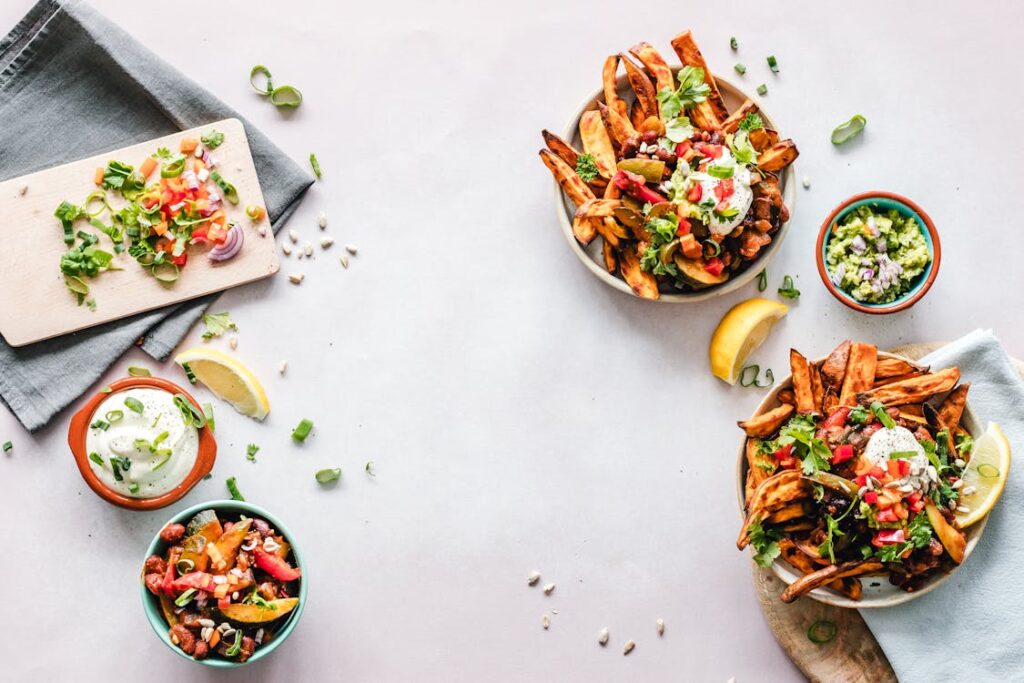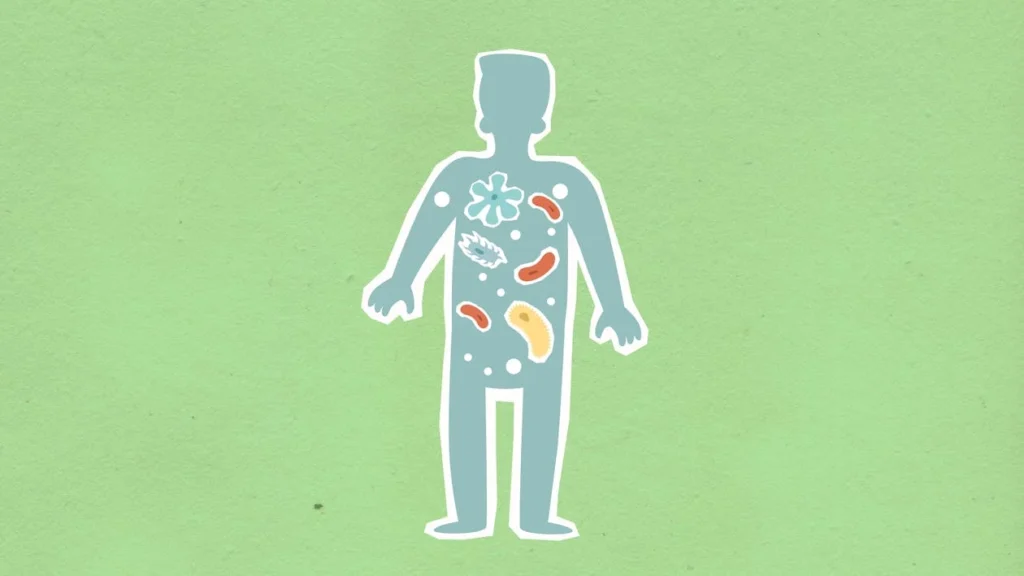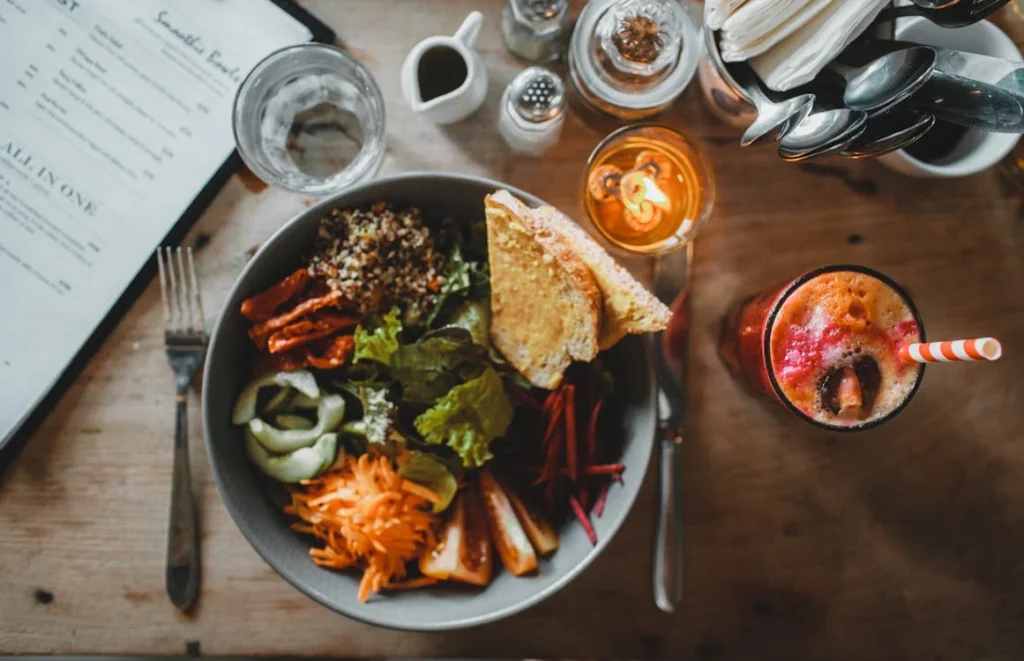Recovery is just as important as exercise, especially for amputees going through physical therapy. Every session puts stress on the muscles, joints, and the residual limb, making proper recovery essential for strength, balance, and mobility. One of the best ways to speed up recovery is by eating the right post-workout snack.
After exercise, the body needs nutrients to repair muscles, reduce inflammation, and replenish energy. For amputees, this is even more critical, as physical therapy often involves strengthening the remaining limbs and adjusting to prosthetic use. A well-chosen snack can make a huge difference in reducing soreness, improving stamina, and preventing fatigue.

Why Post-Workout Nutrition Matters for Amputees
After a physical therapy session, the body enters a recovery phase where it repairs muscles, replenishes energy, and reduces inflammation.
For amputees, this process is even more important because physical therapy often places additional strain on the remaining limbs, joints, and core muscles. A well-balanced post-workout snack helps speed up recovery, prevents muscle loss, and improves overall endurance.
Muscle Recovery and Growth
During exercise, muscles experience tiny tears that need to be repaired. This repair process is what makes muscles stronger over time. Protein is the key nutrient that helps rebuild these tissues, making it a crucial part of any post-workout snack.
Without enough protein, muscles recover more slowly, leading to prolonged soreness and fatigue.
Amputees often rely on their remaining limbs more than those with both arms or legs, which can lead to faster muscle fatigue. Ensuring a steady intake of protein after therapy helps maintain muscle strength and prevents imbalances that could affect posture and mobility.
Lean meats, dairy, eggs, and plant-based proteins like lentils or tofu provide excellent support for muscle repair.
Replenishing Energy Stores
Exercise, even low-impact therapy, uses up stored energy in the form of glycogen, which is found in muscles and the liver. Replenishing glycogen quickly helps maintain stamina for future workouts and daily activities.
Carbohydrates play a key role in restoring these energy reserves, ensuring that the body has the fuel it needs to keep moving.
For amputees, energy levels are especially important. Walking with a prosthetic or performing balance exercises requires significant effort. If the body doesn’t get enough carbohydrates after a workout, fatigue can set in, making it harder to stay consistent with therapy.
Whole grains, fruits, and starchy vegetables provide a steady source of carbohydrates that help refuel the body without causing blood sugar spikes.
Reducing Inflammation for Faster Healing
Inflammation is a natural response to exercise, but too much of it can slow down recovery and increase discomfort. This is especially important for amputees, as excess inflammation can affect the stump, cause swelling, or lead to skin irritation in prosthetic users.
Anti-inflammatory foods help reduce muscle soreness and support circulation, ensuring that oxygen and nutrients reach the areas that need healing.
Foods rich in omega-3 fatty acids, such as walnuts, chia seeds, and fatty fish, can help control inflammation and promote joint health. Fruits like berries and citrus contain antioxidants that fight oxidative stress, preventing excessive muscle breakdown.
Hydration also plays a role in reducing inflammation, so drinking enough water or consuming hydrating foods like cucumbers and watermelon can aid in recovery.
Supporting Bone and Joint Health
Amputees put extra pressure on their bones and joints, making post-workout nutrition essential for long-term mobility. Calcium and vitamin D support bone strength, while magnesium helps prevent cramps and stiffness.
Dairy products, leafy greens, and fortified plant-based milk provide a good source of calcium, while nuts, seeds, and bananas help maintain proper magnesium levels.
For amputees using a prosthetic, joint health is just as important as muscle recovery. The remaining joints take on more weight and stress, increasing the need for collagen-rich foods like bone broth, citrus fruits, and eggs.
These nutrients help keep joints flexible and reduce wear and tear over time.

Best Nutrient-Rich Post-Workout Snacks for Amputees
Choosing the right post-workout snack can make a big difference in recovery and overall energy levels.
For amputees in physical therapy, the goal is to replenish lost nutrients, reduce soreness, and maintain strength for the next session.
The best snacks are those that combine protein, healthy fats, and carbohydrates while also including anti-inflammatory and bone-supporting nutrients.
Protein-Packed Snacks for Muscle Recovery
Protein is the building block of muscle repair. After a therapy session, the body needs high-quality protein to rebuild and strengthen muscles.
A quick and effective post-workout snack could be Greek yogurt with a handful of nuts or seeds. The yogurt provides protein and calcium for bone health, while nuts add healthy fats that help control inflammation.
For those who prefer plant-based options, a smoothie made with almond milk, protein powder, and bananas can be an excellent recovery drink.
The protein powder supports muscle repair, while bananas provide natural sugars to restore energy. Adding a spoonful of peanut butter enhances the snack with additional protein and healthy fats.
Eggs are another powerful post-workout food. A hard-boiled egg paired with whole-grain toast gives a balance of protein and complex carbohydrates, ensuring the body gets both muscle-repairing nutrients and a steady source of energy.
Eggs also contain essential amino acids that aid in overall recovery and help prevent muscle fatigue.
Carbohydrate-Rich Snacks for Energy Restoration
Carbohydrates help restore glycogen levels, which are depleted after exercise. A great option is oatmeal with fresh fruit.
The fiber in oatmeal provides a slow and steady release of energy, while fruits like berries or mango add antioxidants that support circulation.
A slice of whole-grain toast with mashed avocado is another excellent choice. The toast provides carbohydrates, while avocados supply potassium, which helps prevent muscle cramps.
This snack also contains healthy fats that reduce inflammation and support joint health.
For a quick, grab-and-go option, a banana with a handful of almonds offers the perfect combination of carbs and protein.
The banana restores lost energy, while almonds provide protein and magnesium, which can help reduce post-workout muscle soreness.
Anti-Inflammatory Snacks for Faster Healing
Reducing inflammation after a workout is important for amputees, especially those using prosthetics or experiencing stump sensitivity.
One of the best options is a bowl of mixed berries with a spoonful of flaxseeds. Berries contain antioxidants that combat inflammation, while flaxseeds provide omega-3 fatty acids that support joint health and circulation.
Turmeric milk, also known as golden milk, is a warm, soothing option that can help with muscle recovery.
Turmeric contains curcumin, a powerful anti-inflammatory compound that reduces post-exercise swelling. Adding black pepper enhances curcumin absorption, making it even more effective.
Another great anti-inflammatory snack is hummus with carrot sticks. Chickpeas in hummus provide plant-based protein, while olive oil contains heart-healthy fats that improve circulation.
Carrots add fiber and vitamin C, which help strengthen blood vessels and reduce inflammation.
Hydrating Snacks to Support Circulation
Hydration is often overlooked, but it plays a crucial role in post-workout recovery. Dehydration can cause fatigue, muscle cramps, and slower healing.
One of the best ways to rehydrate while refueling the body is with coconut water and a handful of nuts. Coconut water replenishes electrolytes lost during exercise, while nuts provide protein and essential minerals.
Watermelon with feta cheese is another refreshing option. Watermelon is rich in water and contains citrulline, an amino acid that helps improve blood flow.
Feta cheese provides protein and calcium, making this combination ideal for hydration and muscle support.

Timing and Portion Control for Optimal Recovery
Eating the right post-workout snack is important, but when and how much you eat also plays a crucial role in recovery.
For amputees in physical therapy, proper timing and portion control can ensure that the body absorbs nutrients efficiently and maximizes muscle repair, energy restoration, and circulation.
How Soon Should You Eat After Physical Therapy?
The body is most receptive to nutrients within the first 30 to 60 minutes after a workout. This is known as the “anabolic window,” a period where muscles are primed for repair, and glycogen stores can be replenished more efficiently.
Eating a well-balanced snack during this time helps speed up recovery, reduces soreness, and prepares the body for the next session.
For those who cannot eat immediately after a workout, having a protein shake or a small snack like a handful of nuts and fruit can be a good temporary solution.
This prevents muscle breakdown and stabilizes blood sugar levels until a proper meal can be consumed. Hydration should also begin right after therapy to replace fluids lost during exercise and prevent post-workout fatigue.
Portion Sizes for Effective Recovery
The right portion size depends on the intensity of the workout and individual needs. Overeating can lead to sluggishness, while eating too little can result in prolonged muscle soreness and fatigue.
A good post-workout snack should include a balance of protein, carbohydrates, and healthy fats, with an emphasis on whole, unprocessed foods.
A portion of protein should be around 15 to 25 grams, which is roughly equivalent to a small chicken breast, a cup of Greek yogurt, or a protein smoothie.
Carbohydrates should be moderate, focusing on complex sources like whole grains, fruits, and vegetables to provide sustained energy without blood sugar spikes.
Healthy fats, such as those found in nuts, seeds, and avocados, should be consumed in small amounts to support recovery without slowing digestion.
For amputees who are adjusting to prosthetic use, weight management is also a consideration. Snacking on nutrient-dense, portion-controlled foods helps maintain energy levels without excess calorie intake.
Working with a nutritionist or physical therapist can help tailor portion sizes to individual activity levels and recovery needs.
The Role of Meal Composition in Recovery
A well-balanced post-workout meal should contain all three macronutrients—protein for muscle repair, carbohydrates for energy, and fats for joint and nerve health.
Certain vitamins and minerals also play a role in optimizing recovery. Magnesium, found in nuts and leafy greens, helps prevent muscle cramps, while vitamin C, present in citrus fruits, aids in collagen production for joint support.
Combining these nutrients in one meal can enhance overall recovery. For example, a bowl of quinoa with grilled fish and steamed vegetables provides a complete mix of essential nutrients.
A smoothie with protein powder, spinach, and berries can be a quick yet effective recovery option.

Common Post-Workout Nutrition Mistakes Amputees Should Avoid
Even with the best intentions, some eating habits can slow down recovery and make physical therapy more challenging.
Amputees undergoing rehabilitation need to be especially mindful of what they consume after a workout, as poor nutrition choices can lead to fatigue, prolonged soreness, and even difficulties with prosthetic use.
Understanding common post-workout nutrition mistakes can help optimize recovery and improve overall strength and mobility.
Skipping the Post-Workout Snack
One of the biggest mistakes is not eating anything after physical therapy. Some people believe that skipping a snack will help with weight management, but in reality, it can do more harm than good.
After exercise, the body needs fuel to repair muscles and restore energy levels. Without proper nutrition, muscle breakdown can occur, leading to increased fatigue and slower progress in therapy.
For amputees, skipping meals can also contribute to balance issues and a lack of stamina when using a prosthetic.
A post-workout snack doesn’t have to be a full meal—something as simple as a protein shake, a banana with peanut butter, or yogurt with fruit can make a significant difference in recovery.
Relying on Processed Snacks
Many protein bars and sports drinks are marketed as post-workout fuel, but they often contain high amounts of artificial ingredients, added sugar, and unhealthy fats.
While they may provide a quick energy boost, they can lead to sugar crashes and increased inflammation.
Instead of relying on processed snacks, choosing whole foods like eggs, lean meats, nuts, and fresh fruits provides the body with essential nutrients without the unwanted additives.
Natural foods also offer vitamins and minerals that help support circulation, joint health, and tissue repair.
Not Getting Enough Protein
Protein is essential for muscle recovery, yet many people do not consume enough after a workout.
Some may focus too much on carbohydrates, thinking they are the primary source of energy, while others may not eat enough due to lack of appetite post-exercise.
However, without adequate protein, the muscles cannot repair efficiently, leading to increased soreness and slower recovery.
For amputees, protein intake is especially crucial as it helps maintain the strength of the remaining limbs and prevents muscle imbalances.
Foods like cottage cheese, tofu, nuts, and eggs provide excellent protein sources that can be easily incorporated into post-workout snacks.
Overeating or Consuming the Wrong Types of Carbohydrates
While carbohydrates are important for replenishing energy stores, consuming the wrong types or eating too much can lead to sluggishness and weight gain.
Simple carbs, such as white bread, pastries, and sugary cereals, cause rapid spikes in blood sugar followed by crashes, leaving the body feeling fatigued.
Instead, choosing complex carbohydrates like whole grains, quinoa, sweet potatoes, and oats provides a steady energy source without sudden blood sugar fluctuations.
Pairing these carbs with protein and healthy fats ensures a balanced recovery meal that keeps energy levels stable throughout the day.
Ignoring Hydration
Many people focus on food but forget about hydration after a workout. Dehydration can cause muscle cramps, dizziness, and slower recovery times.
For amputees, poor hydration can also lead to increased swelling in the residual limb, making it uncomfortable to wear a prosthetic.
Water should always be the first choice for rehydration. Coconut water is also a great option as it provides natural electrolytes without the added sugars found in many sports drinks.
Herbal teas and fresh fruit-infused water can be refreshing alternatives for those who struggle to drink plain water.
Consuming Too Much Fat Post-Workout
While healthy fats are important, consuming too much fat immediately after a workout can slow digestion and delay nutrient absorption.
This can prevent the body from getting the quick energy it needs to start the recovery process.
Instead of heavy, high-fat meals, opting for lighter sources of healthy fats—like a handful of nuts, avocado on whole-grain toast, or a small portion of hummus with vegetables—can provide the necessary nutrients without overwhelming the digestive system.

Customizing Post-Workout Snacks Based on Activity Level and Therapy Goals
Every amputee has different physical therapy goals, ranging from rebuilding strength and balance to improving endurance and mobility.
The type of exercises performed, the intensity of the workout, and individual dietary needs all influence what the best post-workout snack should look like.
By tailoring nutrition to match activity levels and goals, amputees can maximize recovery, prevent fatigue, and support long-term progress.
Snacks for Strength and Muscle Building
For amputees focused on rebuilding muscle strength, protein is the most important nutrient.
Strength-based therapy often includes resistance exercises, bodyweight training, and prosthetic adaptation drills, all of which cause small tears in muscle fibers that need protein to repair and grow stronger.
A high-protein smoothie made with Greek yogurt, almond milk, banana, and protein powder is a great option for muscle recovery.
The yogurt provides casein, a slow-digesting protein that supports muscle repair over time, while the banana offers quick-digesting carbohydrates to restore energy.
Adding chia seeds or peanut butter enhances the snack with healthy fats, which reduce inflammation and support joint health.
For those who prefer solid food, grilled chicken or tofu with brown rice and steamed vegetables is an excellent post-therapy meal.
The lean protein helps rebuild muscle fibers, while the complex carbohydrates in brown rice ensure a steady release of energy.
Snacks for Improving Endurance and Stamina
If therapy sessions involve prolonged periods of activity, such as gait training, cardiovascular exercises, or long balance drills, the body requires a higher intake of carbohydrates to maintain endurance.
The right post-workout snack should focus on replenishing glycogen stores while still including protein to support recovery.
A bowl of oatmeal with sliced almonds and fresh berries is a great option for boosting endurance.
The slow-digesting carbohydrates in oatmeal provide sustained energy, while the antioxidants in berries help reduce muscle soreness. Almonds contribute protein and magnesium, which prevent muscle cramps.
For a portable option, a whole-grain wrap with hummus, avocado, and grilled vegetables provides a combination of fiber, healthy fats, and plant-based protein.
This snack helps maintain energy levels and promotes circulation, making it easier to recover from high-intensity therapy sessions.
Snacks for Reducing Inflammation and Pain
Amputees recovering from surgery, dealing with prosthetic discomfort, or experiencing inflammation in the residual limb can benefit from anti-inflammatory snacks.
These foods help minimize swelling, reduce joint pain, and improve overall circulation.
Turmeric milk, also known as golden milk, is one of the best anti-inflammatory post-workout drinks.
Made with warm milk (or plant-based milk), turmeric, black pepper, and a touch of honey, this beverage helps reduce soreness and promotes tissue healing.
Black pepper enhances the absorption of curcumin, the active anti-inflammatory compound in turmeric, making the drink even more effective.
For a solid snack, salmon with quinoa and steamed broccoli is a nutrient-packed meal that supports healing.
Salmon provides omega-3 fatty acids, which reduce inflammation, while quinoa delivers plant-based protein and fiber. Broccoli is rich in vitamin C, which supports collagen production and strengthens connective tissues.
Snacks for Maintaining a Healthy Weight
Weight management is important for amputees, as excess weight can put additional stress on the joints and affect prosthetic comfort.
However, restricting calories too much can slow down recovery and lead to muscle loss. The key is choosing nutrient-dense snacks that provide essential vitamins and minerals without excess calories.
A cottage cheese and fruit bowl is a perfect balance of protein and natural sugars. Cottage cheese is high in casein protein, which supports muscle repair, while fruits like peaches or pineapple add hydration and fiber.
This snack keeps you full longer and provides a steady release of energy without spiking blood sugar levels.
Another great option is a handful of mixed nuts with a boiled egg. Nuts provide healthy fats that support brain function and joint health, while the egg delivers high-quality protein.
This simple snack helps maintain muscle tone while controlling hunger between meals.

The Role of Gut Health in Post-Workout Recovery for Amputees
While most discussions on post-workout nutrition focus on protein, carbohydrates, and hydration, gut health plays a hidden but crucial role in recovery.
A healthy digestive system ensures that the body absorbs essential nutrients efficiently, reduces inflammation, and prevents digestive discomfort that could interfere with physical therapy.
For amputees, a well-functioning gut can make the difference between sluggish recovery and optimal healing.
How Gut Health Affects Muscle Recovery
The gut is responsible for breaking down food and delivering nutrients to the bloodstream.
If digestion is sluggish or inefficient, even the best post-workout snacks won’t be fully absorbed, leaving the body undernourished.
Protein synthesis, the process that repairs and builds muscle, relies on a healthy gut microbiome to efficiently break down amino acids and transport them to muscle tissues.
When gut bacteria are imbalanced due to poor diet, stress, or antibiotic use, nutrient absorption is compromised.
This can lead to muscle fatigue, slower wound healing, and increased inflammation in the stump or remaining limbs.
Including probiotic and prebiotic foods in a post-workout routine can improve digestion and help the body maximize its use of nutrients.
Best Foods for Gut Health and Recovery
Fermented foods such as yogurt, kefir, sauerkraut, and kimchi introduce beneficial bacteria into the digestive system, improving nutrient absorption and reducing inflammation.
These foods can be paired with protein sources to ensure that amino acids from post-workout snacks are effectively utilized for muscle repair.
Prebiotic foods like garlic, onions, bananas, and asparagus feed good gut bacteria, helping them thrive.
For amputees, these foods not only support digestion but also play a role in reducing systemic inflammation, which is especially important for those with residual limb sensitivity or swelling.
Inflammation and the Gut-Circulation Connection
Poor gut health contributes to chronic inflammation, which can worsen circulation issues and delay post-workout recovery.
When the gut lining becomes irritated due to processed foods, excessive sugar, or artificial additives, harmful substances can enter the bloodstream, triggering an immune response that tightens blood vessels and reduces oxygen flow.
For amputees who rely on strong circulation to support stump healing and prosthetic comfort, managing gut inflammation is critical.
Anti-inflammatory gut-friendly foods like turmeric, ginger, and green tea can help calm digestive irritation while promoting better blood flow.
Balancing Hydration for Gut and Muscle Health
Hydration plays a dual role in both gut health and post-workout recovery. Water keeps digestion running smoothly, preventing bloating or sluggishness that could interfere with nutrient absorption.
It also supports muscle function by helping transport electrolytes, which regulate nerve signaling and prevent cramps.
Coconut water, herbal teas, and infused water with lemon or mint provide hydration while also delivering gut-friendly compounds that support digestion.
Avoiding excessive caffeine and artificial sweeteners can help prevent gut imbalances that may slow recovery.
Stress, the Gut, and Recovery
The gut and brain are closely connected, meaning stress can directly impact digestion and post-workout recovery.
High-stress levels release cortisol, a hormone that disrupts gut bacteria balance and increases inflammation.
Amputees who experience stress due to mobility challenges or prosthetic adjustments may notice slower recovery times if their digestive health is compromised.
Practicing relaxation techniques such as deep breathing, stretching, or mindfulness after a workout can help regulate stress hormones, allowing the body to digest and absorb nutrients more efficiently.
Pairing a post-workout snack with a calming activity can enhance both gut health and circulation, leading to better overall recovery.
Conclusion
Post-workout nutrition is a key part of recovery for amputees in physical therapy. The right snacks help repair muscles, restore energy, and reduce inflammation, making it easier to progress in rehabilitation and adapt to prosthetic use. A balance of protein, healthy fats, and complex carbohydrates ensures that the body gets the nutrients it needs to heal and grow stronger.
Beyond food, factors like hydration, gut health, sleep, and stress management play a major role in optimizing recovery. Skipping meals, consuming processed snacks, or neglecting hydration can slow progress and lead to fatigue. On the other hand, nutrient-dense, whole foods enhance circulation, prevent soreness, and keep energy levels stable for the next therapy session.
At Robobionics, we believe that proper nutrition and high-quality prosthetics go hand in hand for a better recovery journey. If you’re looking for expert guidance on mobility and comfort, book a free demo of Grippy™ today and experience a prosthetic designed to support your active lifestyle. For more rehabilitation tips and personalized support, contact us to take the next step toward strength and independence.



